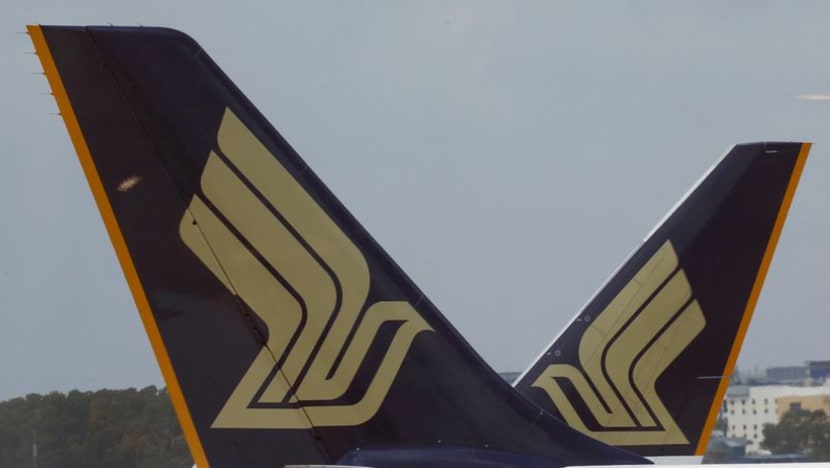SIA and Scoot first airlines to get Neste's Singapore-made sustainable fuel at Changi Airport

Singapore Airlines planes sit on the tarmac at Changi Airport on Mar 3, 2016. (File photo: Reuters/Edgar Su)
SINGAPORE: The Singapore Airlines (SIA) Group has signed an agreement with refinery Neste to purchase 1,000 tonnes of neat Neste MY Sustainable Aviation Fuel for airlines SIA and Scoot.
This will make the two airlines the first operating out of Changi Airport to receive sustainable aviation fuel (SAF) produced by Neste in Singapore, said SIA, Scoot and Neste in a joint media release on Monday (May 6).
"Neste will blend the SAF with conventional jet fuel according to the required safety specifications and deliver the blended jet fuel to Changi Airport's fuel hydrant system in two batches – once in the second quarter of 2024 and once in the fourth quarter of this year," they said.
This first direct supply of Neste's SAF to airlines at Changi Airport will also reinforce the refinery's end-to-end SAF supply chain capabilities in Singapore, they added.
In May last year, Neste completed an expansion of its refinery in Singapore, and it now has the capacity to produce 1 million tonnes of SAF yearly. This makes it the world's largest SAF production facility, SIA, Scoot and Neste said.
SAF is jet fuel made from organic or waste-derived material known as feedstock, instead of petroleum.
Neste's SAF is made entirely from renewable waste and residue raw materials. When used in its unblended form, it can reduce greenhouse gas emissions by up to 80 per cent over its life cycle when compared with fossil jet fuel, SIA, Scoot and Neste said.
"Blended with conventional jet fuel, it seamlessly integrates with existing aircraft engines and fuelling infrastructure," they added.
In a statement, Neste's vice president of renewable aviation Alexander Kueper said: "We are proud that Singapore Airlines and Scoot are our first customers benefiting from our integrated supply capabilities into Changi Airport."
Mr Kueper said the supply of locally produced SAF to Changi Airport is a milestone in Neste's "journey of supporting the aviation industry and governments in the region to achieve their emissions reduction goals".
"We are looking forward to expanding our cooperation with Singapore Airlines as well as supplying visiting carriers at Changi Airport," he said, adding that he hopes the delivery of SAF to the SIA Group along with Singapore's SAF goals will encourage the wider adoption of SAF across the Asia-Pacific region.
As part of Singapore's push for sustainable aviation fuel, flights departing from the country will be required to use sustainable aviation fuel from 2026.
In another statement, SIA chief sustainability officer Lee Wen Fen said that the agreement with Neste was "an important milestone in the SIA Group's journey to have a minimum of 5 per cent sustainable aviation fuel in (its) total fuel uplift by 2030".
"A more sustainable aviation industry will ensure that future generations continue to benefit from the global connectivity, economic prosperity and people links that air travel fosters," she said.
From May 2024, SIA will offer 1,000 SAF "book and claim units" (BCUs) to its corporate travellers, shippers and freight forwarders for purchase, SIA, Scoot and Neste said.
"Each BCU represents one tonne of neat SAF with its associated carbon dioxide reduction benefit," they said.
"Purchasing SAF BCUs allows corporate travellers, shippers and freight forwarders to claim the associated environmental benefits for flights related to their business travel and operations, validating the demand for SAF BCUs and supporting the development of the nascent SAF industry."














